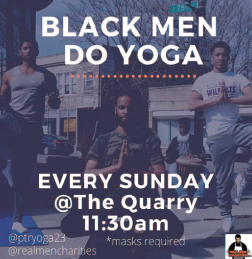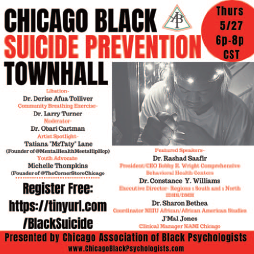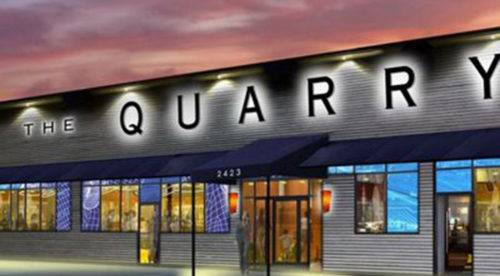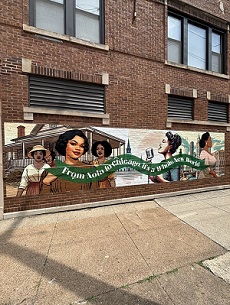At once a jazz club, a restaurant, a family health center, a food pantry, an office space, a library, a publishing house, and a gift shop, The Quarry in South Shore is almost a neighborhood unto itself. Opened in 2014, the event space aims not just to transform the lives of those who attend its gatherings and utilize its services, but gradually, 75th Street and South Shore as a whole.
“We call South Shore the Cultural Soul Coast,” said Quarry owner Yvette Moyo. “And our goal is to touch the cultural soul of the individuals who come here.”
But closures induced by COVID-19 have severely affected The Quarry’s financial situation. Four small businesses, ranging from graphic design services to an investment group, used to rent office space within the building but vacated after the pandemic began. They haven’t yet returned.
Attendance at the Quarry’s usual Friday Night Jazz has also had to be curtailed, in line with state guidelines regulating the capacity of indoor spaces. The reduced revenues from these two have made it harder for The Quarry to keep up with their property taxes, some of them back-dated, which have mounted to nearly $70,000, said Moyo.
Still, Moyo remains optimistic, launching a GoFundMe campaign to help recoup the debt. She said that the Jazz nights, headlined and managed by South Side vibraphonist Thaddeus Tukes, have regularly and quickly sold out since reopening. Some of the changes The Quarry adopted during the pandemic have also become permanent features of the organization.
Moyo said that the Quarry “pivoted to becoming a food stability center” in response to COVID-19, serving first as a food pantry, then a mobile food delivery team, and then, in September of 2020, as a free breakfast center for families in the neighborhood.
“There were so many kids who counted on the free break-fast from school, and who needed a replacement,” Moyo said, “So we took a page from the Black Panthers, and started serving it.”
The meals are served on schooldays from 7:30 a.m. to 9 a.m. and are prepared in the Quarry’s shared kitchen space, currently anchored by chef Arel Ben Israel. Israel is the co-owner of the Soul Veg City restaurant, which also serves vegan soul food from steam tables in one of the Quarry’s main rooms.
Adjacent to the restaurant take-out area is a long corridor that usually features rotating works from local artists. But because of COVID-19, Moyo said, many of the paintings have been temporarily returned to their creators, to be replaced by the items from her personal collection.
In the same corridor is the Quarry’s gift shop, its office spaces, and an archive containing seven years of the South Shore Current (which Moyo formerly co-published and which is now published by Lisa Dawn Taylor), as well as Moyo’s new magazine, The South Side Drive. Featuring work from a range of South Side writers, the South Side Drive offers health and wellness advice and documents the stories of South Shore notables.
Facing the magazine archives is the Quarry’s spacious ballroom, where they host concerts, as well as yoga and wellness sessions for young men (especially fathers).
Moyo explained that her history within the advertising
industry has been crucial in building out The Quarry. She said her marketing work and her work at The Quarry served as an extension of her lifelong goal to “expose and celebrate the beauty and value of Black people.”
Connections in her time advertising the US Postal Service allowed her to obtain prints for The Quarry from Synthia Saint James, who designed the first Kwanzaa Stamp, as well as funding for the organization.
Moyo first moved to South Shore in 1964 at the age of ten, and has lived in the neighborhood off and on for the rest of her life. She recalled how, in her childhood, it was too dangerous for Black people to cross east of South Yates Boulevard to swim at Rainbow Beach. As the area became less segregated, she also fondly remembers a 75th Street on which more Black-owned small businesses flourished.
When she returned to 75th Street nine years ago, she was dismayed at the state of shuttered businesses and violence.
Moyo said, “When I moved back here, this strip was called ‘Terror Town’ and it was one of the most notorious streets for violence. I was appalled. Literary culture and music and performance have always been a part of my life, and to see all that snuffed out by absentee landlords, really, has just been terrible. They hold onto the property so that people who want to do something with these storefronts can’t even figure out how to get to them.”
According to the South Side Weekly, South Shore has lost nearly 12,000 African American residents since 1990; the neighborhood also experienced huge decreases in home-ownership following the 2008 foreclosure crisis. According to the Metropolitan Planning Council, it also lost more downtown jobs than any other neighborhood between 2010 and 2014. For decades, city officials chose predomi-nantly to invest in Chicago’s downtown instead of other neighborhoods, hurting areas like South Shore.
Moyo began volunteering at The Quarry in order to fight these downward trends. She said, “My goal was to not have another South Shore business shutter.”
When former owner Ernest Armstrong passed away in 2015, Moyo said she took the business over, working with Ernest’s wife Susanne Armstrong and funding it with her personal income.
Since assuming ownership, Moyo has helped The Quarry secure numerous grants for repairs, and brought it under the umbrella organization Real Men Charities, which Moyo co-founded.
“One of my proudest moments,” said Moyo, “came when we were distributing food. Cars were coming up here to pick up food, and somebody said, ‘This is the corner of love.’ And I just thought to myself, ‘Wow, from terror town to the corner of love.’”
Donate to the Quarry’s fundraiser
at gofundme.com/f/dv4ag-save-the-quarry.








